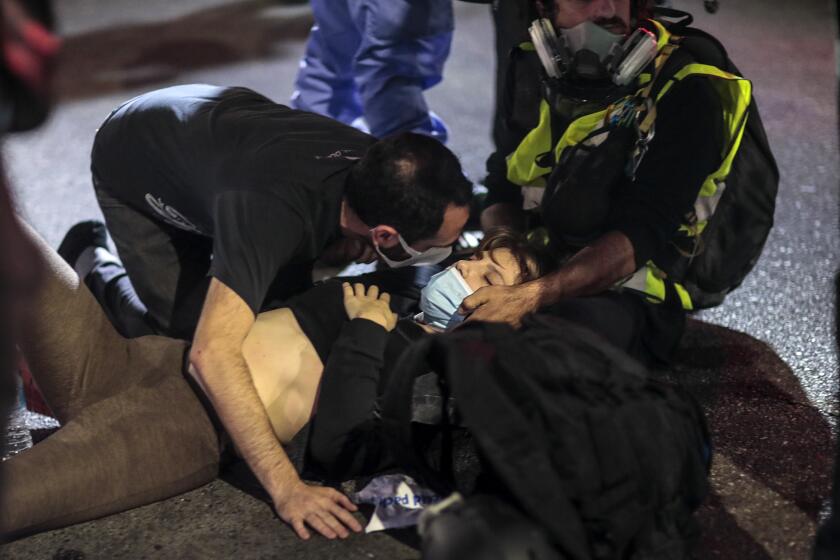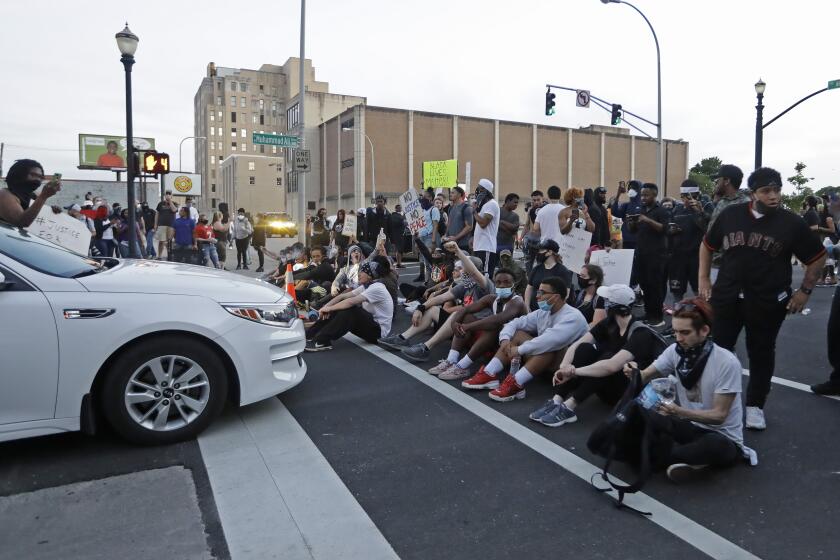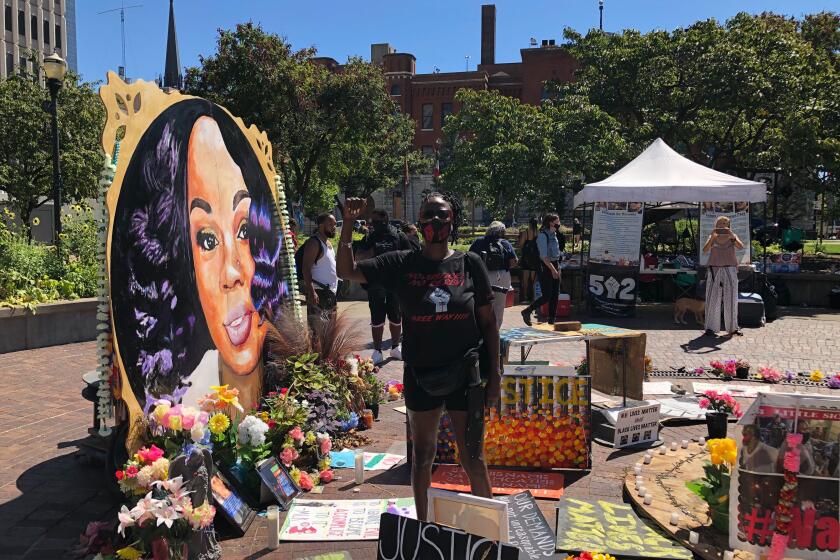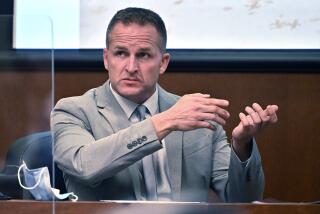A timeline of events related to the killing of Breonna Taylor
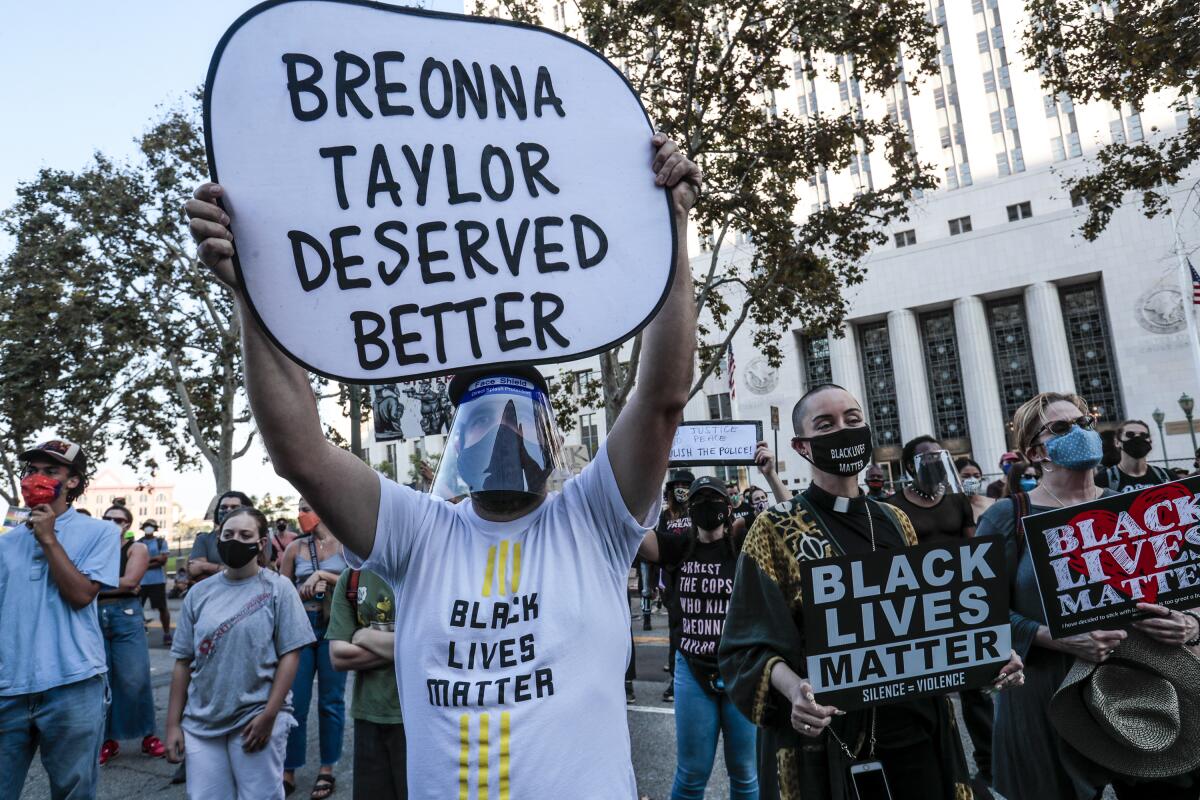
- Share via
Here is a timeline of events that began with the death of Breonna Taylor, a Black woman whose killing by police in her home in Kentucky has encouraged a national reckoning on race:
• March 13: Officers serving a narcotics warrant fatally shoot Breonna Taylor in her home in Louisville, Ky.
• Hours later that day: Police announce the arrest of Kenneth Walker in the wounding of an officer during an exchange of gunfire. Taylor is left unidentified at the news conference, described as “an unresponsive woman who was later pronounced dead.”
• March, April: The shooting is not in the headlines as the COVID-19 pandemic spreads in the U.S.
• April 27: Taylor’s family files a wrongful death lawsuit against the city and its Police Department, challenging the police narrative.
• May 13: Top Louisville prosecutor Tom Wine recuses himself from reviewing the police investigation. Kentucky Atty. Gen. Daniel Cameron is named as special prosecutor.
Wednesday evening, the decision in Louisville, Ky., not to charge police officers with the death of Breonna Taylor prompted new outrage.
• May 20: Chelsey Napper, Zayden Flournoy and Cody Etherton sue Officers Brett Hankison, Myles Cosgrove and Jonathan Mattingly, accusing them of disregarding human life by spraying gunfire into Napper’s apartment, next door to Taylor’s.
• May 22: Prosecutors announce they will drop attempted murder charges against Walker, who shot at officers in his girlfriend’s home.
• May 28: Walker’s anguished 911 call is released, three days after the death of George Floyd at the hands of police in Minnesota, sparking large protests in Louisville.
• May 29: Mayor Greg Fischer suspends the use of no-knock warrants by Louisville police.
• June 1: Fischer fires Police Chief Steve Conrad after officers fail to turn on body cameras in the shooting of barbecue cook David McAtee during protests in Louisville.
• June 11: The Louisville Metro Council unanimously passes “Breonna’s Law,” which bans the use of no-knock warrants.
• June 14: Pop star Beyoncé writes Cameron, urging him to charge the police officers involved in the shooting.
• June 23: Hankison, one of the three officers who fired shots the night of Taylor’s death, is fired for “blindly” firing into Taylor’s apartment.
• June 25: Celebrities join hundreds of demonstrators outside the state Capitol, calling on Cameron to charge the officers.
The gunfire that killed a black woman and wounded a police detective who crashed through her door has fueled debate over so-called no-knock warrants.
• June 28: Photographer Tyler Gerth is fatally shot at the site of ongoing protests in downtown Louisville.
• July 14: Protesters are arrested for demonstrating on Cameron’s front lawn.
• Aug. 12: Taylor’s mother, Tamika Palmer, meets with Cameron.
• Sept. 5: Hundreds peacefully protest outside the Kentucky Derby, urging Cameron to criminally charge the officers.
Protesters march peacefully around Churchill Downs for Breonna Taylor, insisting “No justice, no Derby.” Armed militias on both sides are also present.
• Sept. 7: Fischer names Yvette Gentry, the first Black woman to lead the Louisville Police Department, as interim chief beginning Oct. 1.
• Sept. 9: Cameron is included on President Trump’s shortlist of Supreme Court candidates.
• Sept. 15: Louisville announces a civil settlement providing Taylor’s family with $12 million and promising police reforms.
• Sept. 23: A Kentucky grand jury, relying on Cameron’s presentation, indicts Hankison for shooting into neighboring apartments but does not charge any officers for their role in Taylor’s death. An emotional Cameron says the officer’s shots were justified.
• Sept. 24: Dismay spills into America’s streets as protesters say their demands for racial justice have gone unheard.
More to Read
Sign up for Essential California
The most important California stories and recommendations in your inbox every morning.
You may occasionally receive promotional content from the Los Angeles Times.
